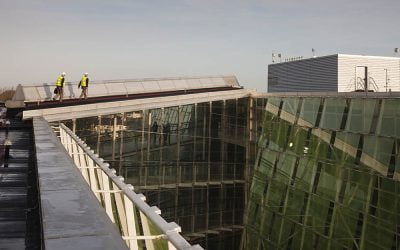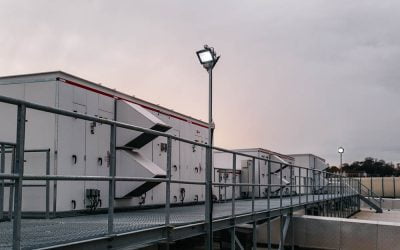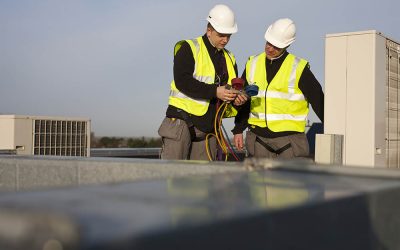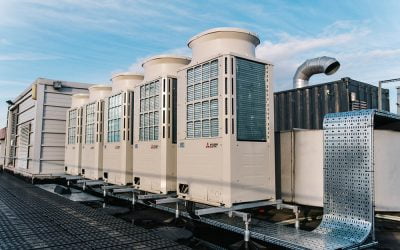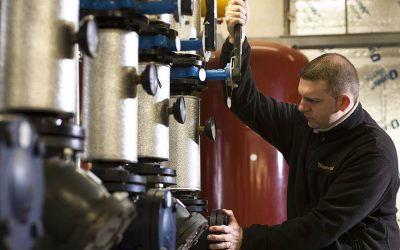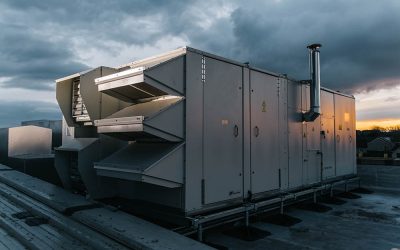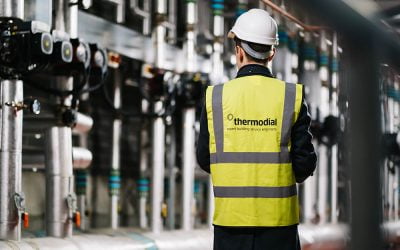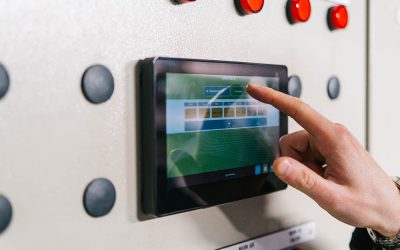Air conditioning service and maintenance

Air conditioning service consists of tests, checks and calibration of air conditioning systems to confirm its correct and efficient operation. Only trained and certified service engineers may service air conditioning systems, due to presence of harmful fluorinated gases (F-Gases).
Air conditioning
Air conditioning is also referred to as, air con or by using the acronym AC. Air conditioning is conditioning the air in an indoor environment for either the comfort of the occupants or for a business process. Business processes can include but aren’t limited to: computer and comms room cooling; data centre cooling; precise clean room and laboratory temperatures; museum and gallery humidity or food storage environments. While comfort air conditioning is mainly used in the office, retail or any environment that requires additional heating, cooling or ventilation. Air conditioning results in more accurate local temperature control by heating, cooling or ventilating an area.
Air conditioning system
An air conditioning system maybe formed by one or numerous individual air conditioning units located throughout a building or complex. Air conditioning is part of a heating, ventilation and air conditioning (HVAC) system.
Air conditioning service and maintenance
Air conditioning servicing is carried out in accordance with following requirements:
- Fluorinated gas (F-Gas) regulations set out by the European Union.
- The original equipment manufacturer (OEM) specification i.e. the manufacturer’s recommendations.
- Your own business specific requirements.
- The advice from your maintenance provider.
- Current health and safety regulations.
In general, servicing should take place at least twice per year in a commercial building. While it should take place four times per year where the air conditioning system is essential to supporting business critical systems, particularly where it operates 24/7 and there is no standby or back-up unit. The process of servicing an air conditioning system is known as planned preventative maintenance (PPM).
PPM is a risk averse measure, ensuring uptime of operation-critical systems.
Air conditioning PPM
PPM service checks include: verification of efficient operation, health and safety inspections, examination of critical components, appropriate discharge inspection, inspection of electrical connections and analysis of operation parameters, such as, temperatures, pressures, noises and vibrations.
PPM seeks to service air conditioning as a part of the overall HVAC system. This ensures that air conditioning systems are acting in harmony and not competing against heating and ventilation systems, which can sometimes occur.
Air conditioning servicing can take place on a variety of different units, such as: spilt units; cassette units and in chiller systems. Depending on the system, servicing will also have to take place on parts within the system, such as: compressors, condensers, expansion valves and evaporators, as appropriate.
Air conditioning PPM checks
Service and maintenance of air conditioning systems include: checks on filters; inspection of cooling coils; inspection of condense pumps; leak checking; checking of pipework; inspection of lagging; electrical checks; cleaning of grilles and flanges; checking crankcase heater amps; checking oil levels; examining safety switches; visually observing the area surrounding units; inspecting anti-vibration mountings; checking capillaries, tubes and Schrader valves; inspecting pressure relief valve tags; inspection of fan guards and mesh filters; inspection of fan belts; verification and calibration of alarm set points and temperature sensors; inspection of fan scrolls and inspection of three port valves.
To complete service visits the following records should be completed:
- Service log labels – specifying service actions, persons and dates.
- Updating the ‘Contains Fluorinated Greenhouse Gases’ label where necessary.
- Updating the ‘Leak Check Record’ label where necessary.
- Updating the F-Gas service log – specifying each piece of equipment; quantities and gases contained; recycling certificates for recycled gas; decommissioned equipment; dates and results of checks – for a minimum of five years.
As part of air conditioning PPM it is also prudent to maintain a stock of spare system parts, particularly those critical to operation or ones that can be difficult to obtain at short notice.
Air conditioning error codes
From time to time air conditioning units can display error codes, highlighting faults in the unit’s operation. Generally, faults are mitigated by PPM, however, some error codes may appear outside of service visits that may require attention.
Air conditioning health and safety
Like any mechanical or electrical system, there are inherent hazards associated with this service work. Service engineers must be aware of: electrical components, pressure systems, hazardous substances – such as, refrigerant gases and cleaning chemicals – the sharp edges of coil fins, dust and dirt and the possibility of legionella bacteria in the condense tray. Careful consideration should also be given in handling, cleaning and disposing of filters in a COVID-19 context.
To mitigate risks, service engineers carrying out servicing are appropriately attired in personal protective equipment (PPE). Service engineers should also be competently trained and certified by F-Gas Registration to carry out works. Then, before commencing any maintenance activities, building facility managers or others should be furnished with work method statements and site risk assessments that have been conducted. These document site-specific hazards, working risks and their associated control measures.
Air conditioning service engineer
All service engineers servicing air conditioning systems must be suitably qualified and certified to do so – in accordance with article 4 of Regulation (EU) 2015/2067:
A certification body… shall issue a certificate to natural persons who have passed a theoretical and practical examination organised by an evaluation body… covering the minimum skills and knowledge…
certificates for natural persons
Article 3 of Regulation (EU) 2015/2067 displays that there are four categories to which persons can be trained and certified to work on air conditioning systems:
Category Ⅰ – all refrigerant handling activities;
Category Ⅱ – activity on systems containing less than 3 kg of F-Gas and leak checks on any plant if it does not entail breaking into the refrigeration circuit;
Category Ⅲ – refrigerant recovery on systems of less than 3 kg of F-Gas;
Category Ⅳ – leak checks on any plant if it does not entail breaking into the refrigeration circuit.certification of natural persons
In Ireland, these natural persons obtain training through Quality and Qualifications Ireland (QQI). Those previously trained through the City and Guilds or other such UK bodies should apply to the Environmental Protection Agency (EPA) for EU recognised certification. As, after 31 December 2020, UK certification body certificates will no longer be recognised in the European Union – making it illegal to carryout air conditioning servicing in Ireland under their certification.
Certified companies
A company certification scheme for companies working with refrigeration, air conditioning and heat pump equipment containing F-Gases is managed by F-Gas Registration. This provides peace-of-mind, confirming that company service engineers are certified to the required standards.
Check for F-Gas certified companies on F-Gas Registration
Prior annual notification (PAN)
F-Gases recovered from air conditioning systems are considered hazardous substances due to their global warming (GWP). Therefore, any company collecting or transporting these substances are legally required to hold a permit. This permit is known as prior annual notification (PAN) and it is issued by the EPA.
Check for companies with current PAN
Benefits to air conditioning PPM
1. Improved reliability
Performing PPM of air conditioning systems provides proof of efficient working order of air conditioning, protecting your capital investment. It also identifies repairs that may be needed before a breakdown occurs, ensuring maximum uptime of the plant, giving you peace-of-mind. It also provides the benefit cleaner air, enhanced comfort or more precise control over a business-critical process.
2. Health and safety and legal compliance
PPM also ensures compliance with all health and safety and legal requirements. This compliance will also assist in the event of audits by statutory bodies, such as, the Environmental Protection Agency (EPA) or the Health and Safety Authority (HSA).
3. Energy Efficiency
PPM seeks to optimise the energy efficiency of air conditioning systems, harmonising their operations with other connected plant and equipment within the HVAC system. While the PPM checks will ensure systems are not operating inefficiently or wastefully. A well-balanced system operating to optimal levels can provide closer control of the work environment and energy savings – costing you less money to operate.
Implications of no air conditioning service
1. Operations downtime
Air conditioning systems may directly or indirectly feed into your production or business operation supply chain. Therefore, the care and attention of PPM is required. Without service and maintenance, business operations could incur unwanted downtime for repairs, costing you money and damaging to your brand’s reputation.
Further, any warranty guarantees can be dependent upon evidence of service records from competent providers.
2. Uncomfortable conditions
Increased complaints from staff, customers and visitors alike can lead to industrial relations issues and reputational damage amongst stakeholders. Unmaintained systems may not operate within desired design parameters to the comfort satisfaction of building occupants – be it too hot or too cold.
3. Compliance failure
Audit failure with the statutory agency – Environmental Protection Agency (EPA) – could lead to prosecutions and penalties (article 14 of Statutory Instrument (S.I.) No. 658 of 2016 of European Union (Fluorinated Greenhouse Gas) Regulations 2016.
Moreover, lack of attention to safety could lead to injury or death, particularly in dealing with water systems, where condense trays are vulnerable to Legionnaire’s disease. Some air conditioning F-Gases operate at high pressures, while others in legacy systems have a high GWP, potentially putting service engineers and the environment at risk.
Compliance audits on air conditioning systems are becoming more common place, as the EPA enforce EU F-Gas regulations and the phase down of harmful refrigerants. Within article 10 of S.I. No. 658 0f 2016 of European Union (Fluorinated Greenhouse Gas) Regulations 2016, an authorised officer (of the EPA) may,
(a) enter on any premises at all reasonable times…
(b) (i) may survey, carry out inspections, examinations and checks of, take photographs, take samples, and take measurements…
(c) at such premises inspect and take copies of, any books, records, other documents (including documents stored in non-legible form) or extracts therefrom, which he or she finds in the course of his or her inspection…authorised officer
Remote access and monitoring
Remote access and monitoring of energy usage and control of air conditioning systems can lead to savings. It can provide better response times to issues, saving on service engineer travel costs and the associated carbon emissions. This can be done through a remote access router called an eWON providing access to a site-based building energy management system (BEMS). Connected to your air conditioning system a BEMS also provides for better, more harmonised control, not just of your air conditioning system, but of the overall HVAC system.
F-Gas/refrigerant gas quota and phase down
The EU began the process of phasing out of use, the most harmful refrigerant gases – which are used to provide cooling in air conditioning systems. Refrigerant or F-Gases are grouped by their GWP with corresponding service bans are in place for the most harmful gases. To make air conditioning systems less hazardous and more environmentally friendly the EU enacted the F-Gas quota and phase down in 2015.
Thermodial’s approach
Thermodial’s approach to air conditioning servicing is through a PPM regime. This approach is the most risk averse, energy efficient and cost-effective measure. It not only saves on costs through optimal, energy efficient operation of systems, but it realises a maintenance saving through fewer callouts.
Also, all Thermodial HVAC service engineers are trained and certified by the EPA to F-Gas category Ⅰ, meaning there is no restriction on their air conditioning service activities. This also increases the possibilities of achieving a first-time fix to issues, due to their higher level of training.
Explore our full PPM capabilities.
Key legislation
European Union (Fluorinated Greenhouse Gas) Regulations 2016| S.I. No. 658 of 2016.
Customer testimonials
Latest News

HVAC energy saving tips from our engineers
HVAC energy savings tips from Thermodial service engineers, covering commercial heating, ventilation and air conditioning systems. With energy bills at unprecedented levels, energy savings tips for domestic properties are also included. 1. Monday HVAC energy saving...
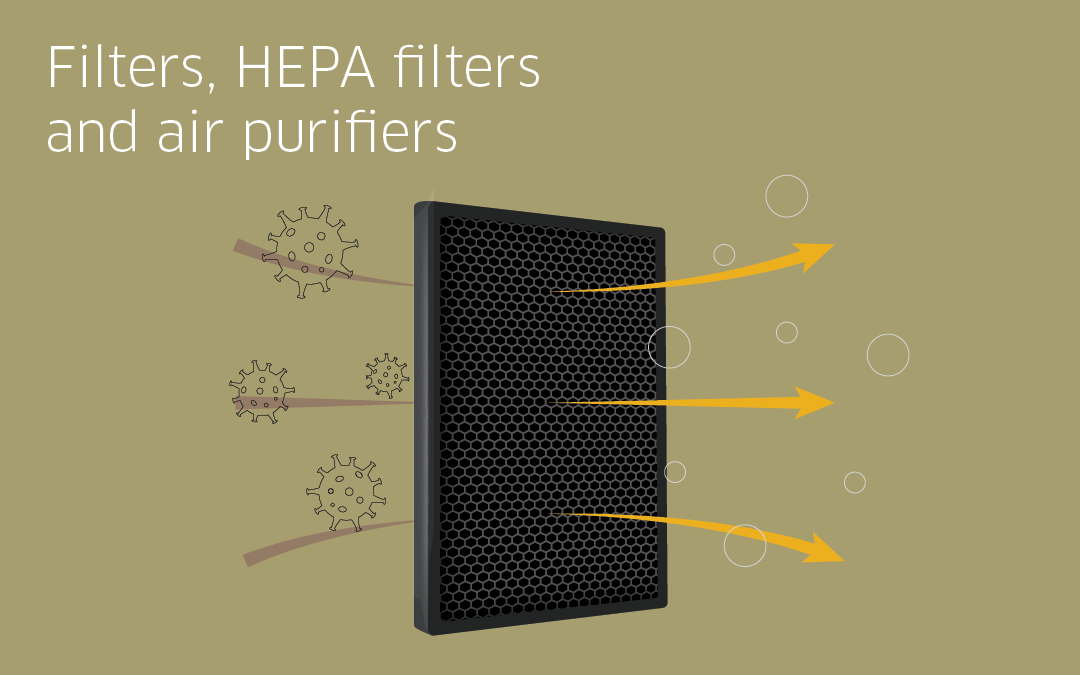
Filters, HEPA filters and air cleaners/purifiers
HEPA filters and portable air cleaners/purifiers have been subject to a lot of talk due to the need to boost ventilation from COVID-19 pandemic times. While HEPA filters and air cleaners/purifiers have their uses in specialist settings, standard filters can prove...
From the news archives…
Filters, HEPA filters and air cleaners/purifiers
HEPA filters and portable air cleaners/purifiers have been subject to a lot of talk due to the need to boost ventilation from COVID-19 pandemic times. While HEPA filters and air cleaners/purifiers have their uses in specialist settings, standard filters can prove...
VIDEO: air conditioning leaking water – 6 common causes
An air conditioning unit leaking water is one of the most common and sometimes the most disruptive building service problems – due to unit locations – in a workplace environment. Leaking air conditioning units generally occur over the summer months where their use and...
HVAC and water systems operation in COVID-19
Version 2 | updated: September 2021 Good ventilation – natural or mechanical – is one of the best ways of fighting coronavirus/COVID-19 and diluting virus particles that might be present in the workplace. This is a guidance document on currently known best practice...
VIDEO: planned preventative maintenance (PPM) – improve, reduce, save
Planned preventative maintenance (PPM) reduces the likelihood of heating, ventilation and air conditioning (HVAC) system failure, improves efficiency and saves you time and money. Well maintained HVAC systems are proven less likely to fail and cause interruption to...
VIDEO: frost or ice on coils or pipes in heat pumps and air conditioning systems
Heat pumps and air conditioning systems are integral parts of a building’s operation through the role they play for people and product development. Heat pumps are a cost effective and efficient way of providing heating, cooling (only in reversible systems) and hot...
Talk To Thermodial
When Thermodial were founded in 1986, the founders had a vision of an engineering focused service, but also one that was responsive and reliable.
This belief should hold true to dealing with questions or information requests, such as one you may have.
Please contact us by filling in the form below, for a prompt response; email info@thermodial.ie or ring us in Dublin.
As the experts in HVAC maintenance, upgrades and energy management, we would be happy to respond to your requests.


